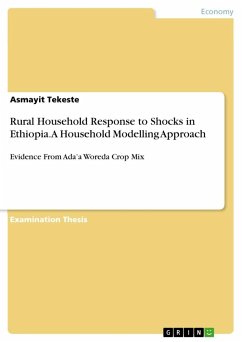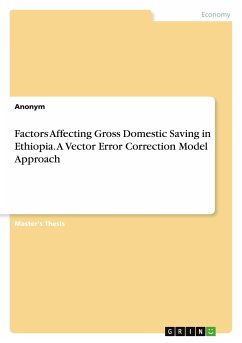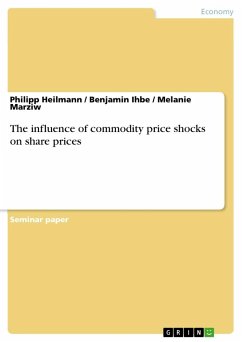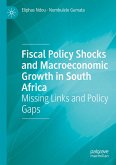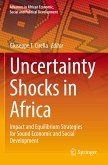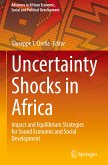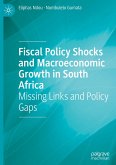Examination Thesis from the year 2016 in the subject Economics - Other, grade: 4.0/ EXCELLENT, , course: DEVELOPMENT ECONOMICS, language: English, abstract: This study assesses the response of rural households to output and input prices as well as technological changes in mixed crop production in Ethiopia, in case of Ada'a woreda selecting a sample size of 100 households using a non separable household modeling approach. Cobb Douglas function is used for the production and utility function and major constraints like land, labor, seed and fertilizer are considered in order to find the optimum values that would enable household maximize their utility. The most widely produced 7 crops in the village were selected. The optimal value exposes that mono cropping is better than multiple cropping to maximize utility. Output price, factor price and technology shocks were introduced in order to see how the households respond and how and to what extent that the production, consumption and welfare of households are changed. The finding of the study reveals that households tend to leave the agricultural sector if all input prices are increased by 10% and this is the case where the households face minimum welfare level. When output prices are increased by the same figure, farmers allocate all of their labor in the agricultural sector. A technological improvement by 20% on teff enables households to fully engage in agricultural activities and secure the highest utility compared to other shocks while other crops are not responsive to technological change. This implies that stakeholders should focus to improve the method of production of teff in the village. In addition, the government should get involved in such a way that factor prices shouldn't be increased beyond a certain point. Ethiopia has experienced three main political regime changes in the last five decades along with an unremitting political instability and war. In the imperial regime, a mixture of feudalism and capitalism was the main framework of the economy. The government also attempted to implement successive five year planning that heavily engaged in industrialization. However, they failed to achieve what is expected due to the fact that agriculture received less attention. Amidst this performance, the socialist government seized power and nationalized all the emerging private industries. The government firmly controlled all economic activities and marginalized private investors from main activities.
Hinweis: Dieser Artikel kann nur an eine deutsche Lieferadresse ausgeliefert werden.
Hinweis: Dieser Artikel kann nur an eine deutsche Lieferadresse ausgeliefert werden.

